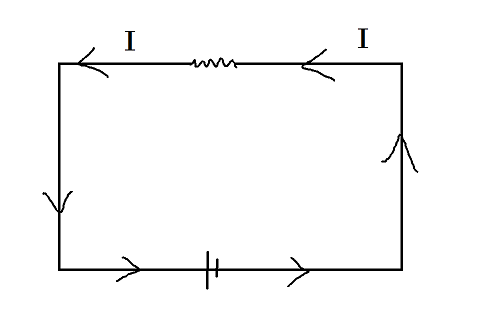In my grade 10 Physics book, its written that the electrons collide with the positively charged particles in the resistor and-
These collisions tend to slow down the speed of electrons and hence oppose the flow of electric current.
Suppose an electric current is flowing through a conductor with the arrows showing the direction of ELECTRON flow through the circuit, with a current I.
It has already been stated that the current I is the same across the conductor and on both sides of the resistor. I came to know about the popular "Water-Pipe Analogy" from a video by Indian Physics Professor H.C. Verma, which said that similar to how water flow will act across a pipe if the volume of a portion of the pipe is constricted then the volume of water entering the constriction will be equal to the volume of water leaving the constriction at an instant.
He also explained that if a water speed difference exists between the two ends of the constriction(or resistor for electrons), there will be an accumulation of water(or electrons) in which will probably explode the pipe(or resistor).
My questions are:
- So does this mean that the electrons already determine their speed across a conducting wire when a resistor is being attached to it? Suppose the wire has a minimum resistance of R1 and the resistor has resistance of R2; so are their resistances being added as R=R1+R2 to get the total resistance of the conductor(as is done in resistances attached in series)? So does this mean that the electrons "decide" what speed they have to acquire when coming out from the battery depending on the net resistance of the conductor?
P.S: We have not been taught about the internal functioning of a battery yet, so I might be missing out something on not knowing that.

